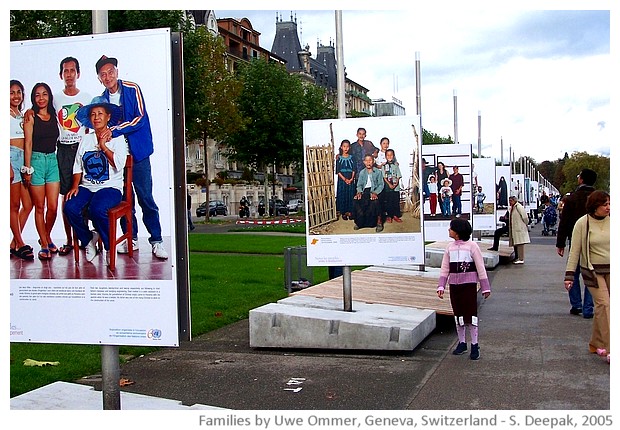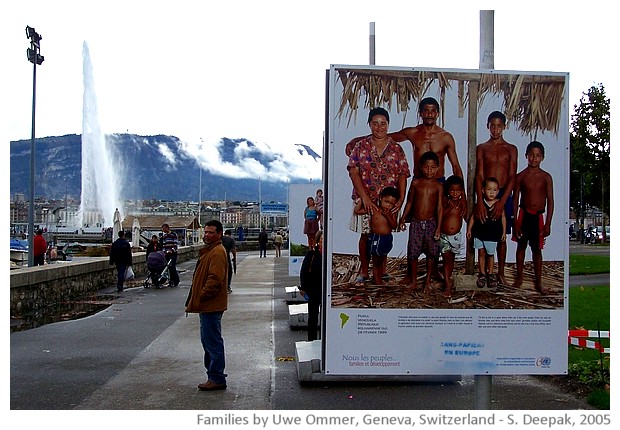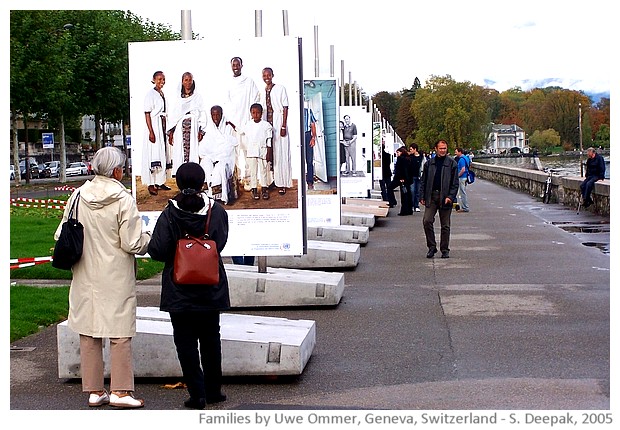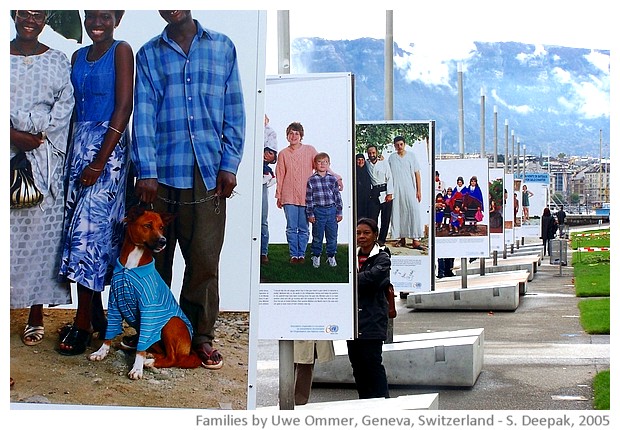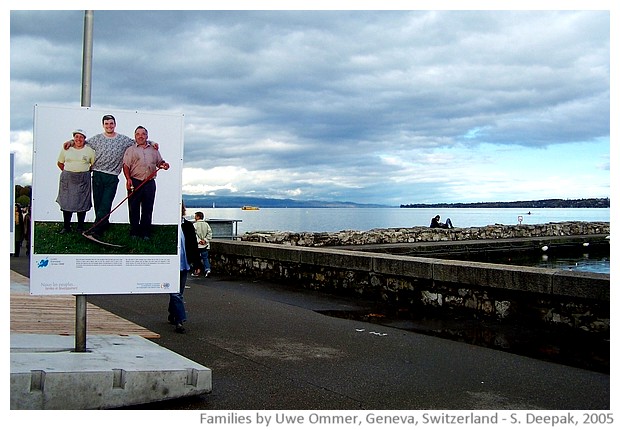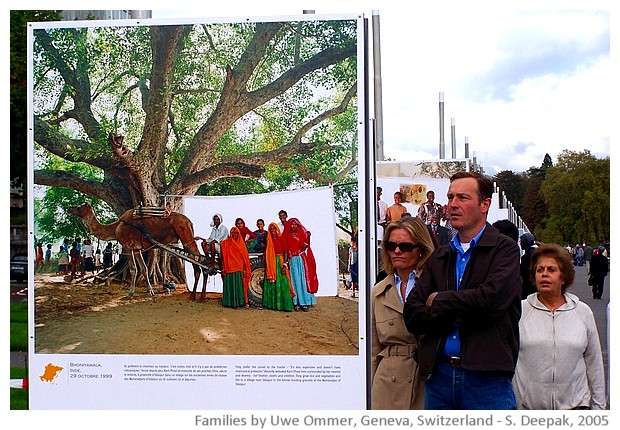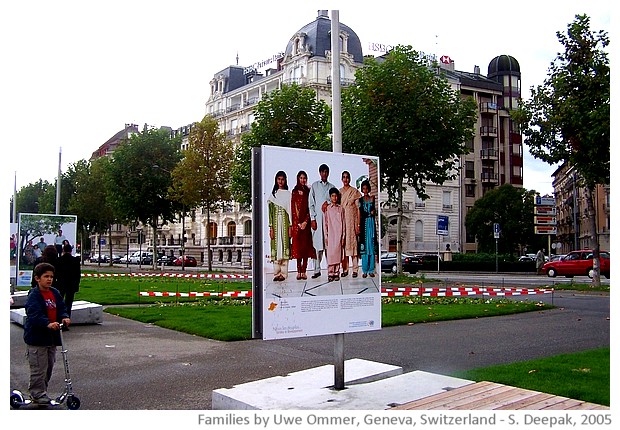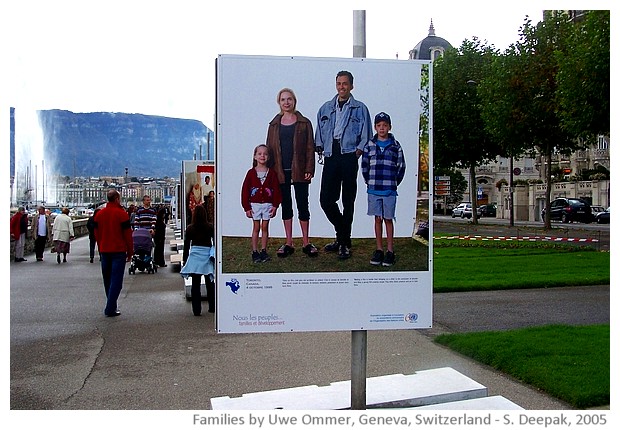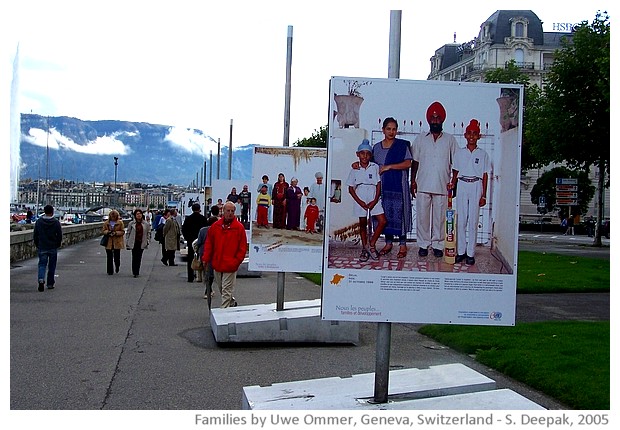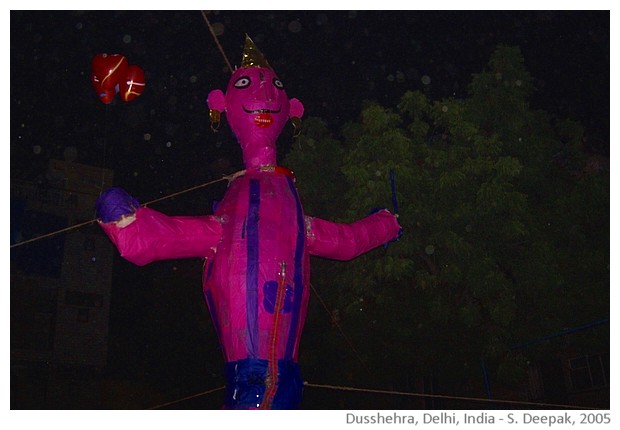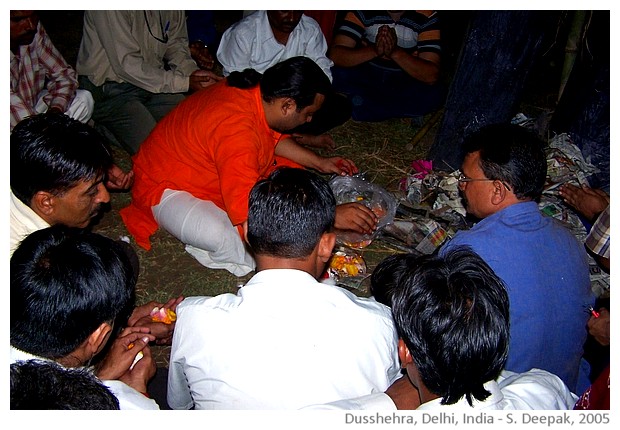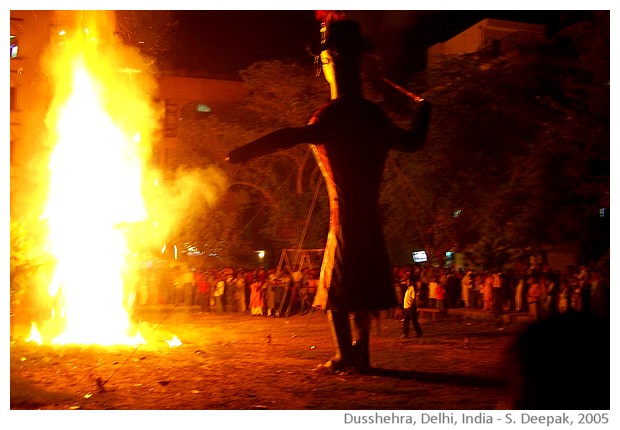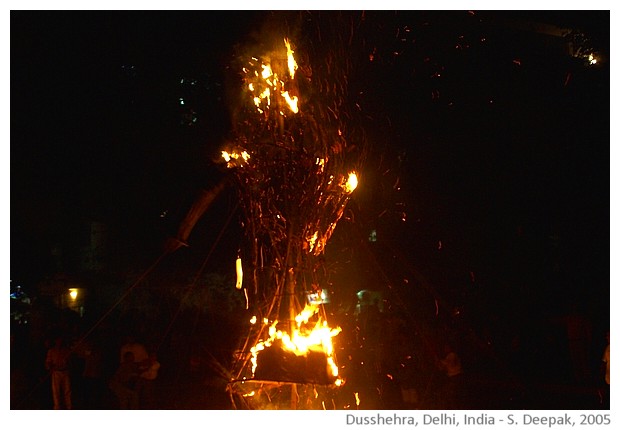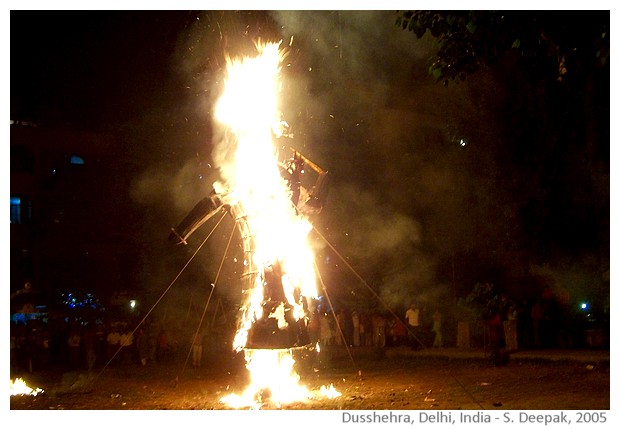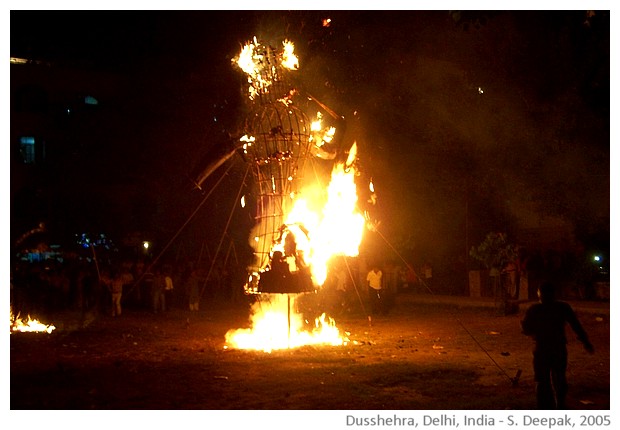I am transcribing old articles in Hindi. Articles written by papa, when he was alive. Or, written about him, after his death.
Mummy collected all of those and made neat packages. Mankind articles here, Kalpana articles here, stories here... All the life cupped into yellowing, crumbling papers. His and hers. He did it for living and she did it for him.
She is retired, let her do it. She will keep busy, I'd thought.
Then she wanted them to be printed. Collected works of ... all the essays on student movement of Bihar ... all the articles on the famine, on Gandhi, on socialism... She made the photocopies of the files, sending them to this or that person.
An old friend of papa said, "Why don't you pay to get them printed? Two of you are living abroad. All of you earn good money. What does a little money mean to you? Pay to get them printed, they will be useful."
Pay to get them printed? I felt a little offended. Print it because only you want it, no publisher wants it because it won't sell any way. It hurt because I thought it was true.
And mummy, her memory is becoming RAM, gets erased quickly.
Give them to me, few at a time, I will transcribe them, I offered. And then I will put them up on the web at Kalpana, I thought. We went together to the old cupboard, that once used to hold the medicines in my clinic. It is full of rotting papers. Old files smelling of crumbling papers. She hardly remembers, what is there in which file, and gets worked up. Can't forget watching her sitting there on our old sofa with old papers strewn all around her, the pain in her eyes.
And so I sit here at the computer. Slowly transcribing in Hindi. Writers, journalists, socialist leaders, friends and colleagues of papa. It was his world, that I knew about but I hardly stopped to look at. I was there, but I was too busy living my life. Now I read about them and fragments of memories come back slowly. Kishen Patnaik, Ashok Seksaria, George Fernandes, Jay Prakash Narayan... names and faces.
*****
There was a comment yesterday.
I treasure them since they are so rare. It is from Arundhati. Could it be ... for a moment I thought of the fleeting meeting at Delhi airport, a few years ago. No, it is not. The name of her blog is almost an answer to my "Jo Na Keh Sake" - "Leave it unsaid". It is another Arundhati, who writes about silences to answer declarations of love, and about becoming one, merging together with her loved one.
Huh!
I prefer being myself and her being herself. That way it is more fun. I suddenly think of how little time we actually spend together, we are too busy in running all the time. Or in writing blogs (only me!).
She will wake up soon and come smiling for the first hug. And then she will bring me coffee. That is how we do it, I sit in front of the computer and she brings me coffee or prepares sandwich for taking to work. And the day starts.
And she doesn't like silences for answers. Nor do I, while I come to think of it.
******
Children working, their eyes hard and wry. The ones sitting next to their mothers and fathers, asking alms, they have the toughest job, I think. And the worst.
***
Mummy collected all of those and made neat packages. Mankind articles here, Kalpana articles here, stories here... All the life cupped into yellowing, crumbling papers. His and hers. He did it for living and she did it for him.
She is retired, let her do it. She will keep busy, I'd thought.
Then she wanted them to be printed. Collected works of ... all the essays on student movement of Bihar ... all the articles on the famine, on Gandhi, on socialism... She made the photocopies of the files, sending them to this or that person.
An old friend of papa said, "Why don't you pay to get them printed? Two of you are living abroad. All of you earn good money. What does a little money mean to you? Pay to get them printed, they will be useful."
Pay to get them printed? I felt a little offended. Print it because only you want it, no publisher wants it because it won't sell any way. It hurt because I thought it was true.
And mummy, her memory is becoming RAM, gets erased quickly.
Give them to me, few at a time, I will transcribe them, I offered. And then I will put them up on the web at Kalpana, I thought. We went together to the old cupboard, that once used to hold the medicines in my clinic. It is full of rotting papers. Old files smelling of crumbling papers. She hardly remembers, what is there in which file, and gets worked up. Can't forget watching her sitting there on our old sofa with old papers strewn all around her, the pain in her eyes.
And so I sit here at the computer. Slowly transcribing in Hindi. Writers, journalists, socialist leaders, friends and colleagues of papa. It was his world, that I knew about but I hardly stopped to look at. I was there, but I was too busy living my life. Now I read about them and fragments of memories come back slowly. Kishen Patnaik, Ashok Seksaria, George Fernandes, Jay Prakash Narayan... names and faces.
*****
There was a comment yesterday.
I treasure them since they are so rare. It is from Arundhati. Could it be ... for a moment I thought of the fleeting meeting at Delhi airport, a few years ago. No, it is not. The name of her blog is almost an answer to my "Jo Na Keh Sake" - "Leave it unsaid". It is another Arundhati, who writes about silences to answer declarations of love, and about becoming one, merging together with her loved one.
Huh!
I prefer being myself and her being herself. That way it is more fun. I suddenly think of how little time we actually spend together, we are too busy in running all the time. Or in writing blogs (only me!).
She will wake up soon and come smiling for the first hug. And then she will bring me coffee. That is how we do it, I sit in front of the computer and she brings me coffee or prepares sandwich for taking to work. And the day starts.
And she doesn't like silences for answers. Nor do I, while I come to think of it.
******
Children working, their eyes hard and wry. The ones sitting next to their mothers and fathers, asking alms, they have the toughest job, I think. And the worst.
***

